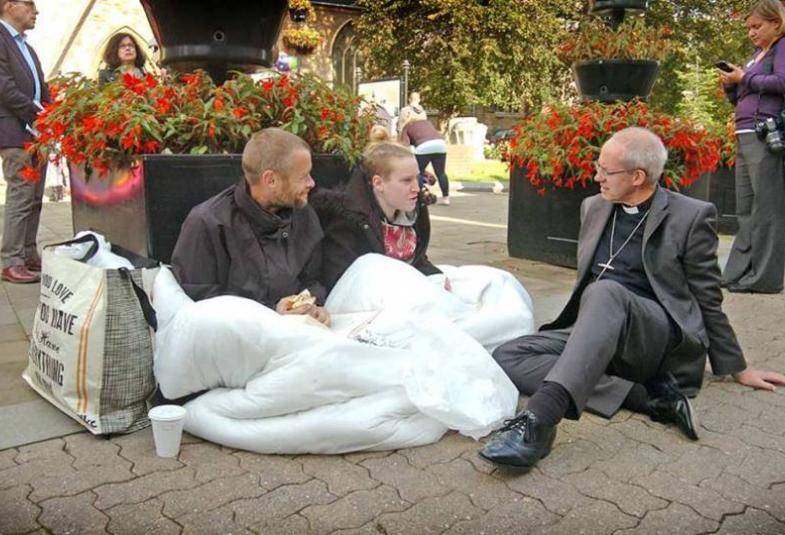
THIS year has been harsh by any standards.
In almost every country the hidden enemy has struck. The virus has messed up the lives of so many. Across the world almost two million people have died. And just as the vaccine is offering great hope, a new strain is emerging.
Normally in a crisis, being together would help us get through it. We’d talk, pray and hug each other. We’d argue and make up.
We’ve found creative ways of staying in touch. There have been Zooms and socially distanced outdoor gatherings.
Places of worship have moved online. We’ve learned how to hold church services safely. This has given comfort to huge numbers.
But none of this changes the fact that there is another epidemic out there: The epidemic of loneliness. And we need to do something about it.
Christmas brings that into sharper focus. Christmas gives many of us, Christian or not, a change of pace, the chance to spend time with friends and family. But this year millions of us will be alone.
Even before Covid, we knew loneliness was a crisis. Surveys show half of us feel lonely at least sometimes. A growing number are lonely most of the time.
One Christmas I was almost alone except for my dad, who drank. I was just looking out of the window at family groups. It was grim. Loneliness is deadly serious. Scientists have found that it hits your mental and physical health. Long-term, it raises stress and blood pressure.
It is estimated to be the equivalent of smoking 15 cigarettes a day, which makes it worse for our long-term health than obesity.
There are lots of reasons for this explosion in loneliness, from more of us living alone or working in smaller workplaces to pubs closing.
But we can beat it. And what better time to start than this dark Christmas? I’m part of the Together Initiative, a group of people and organisations including the NHS, the Scouts and the Red Cross, who are committed to building a kinder, closer and more connected country.
We have launched the #ChristmasTogether campaign, and it’s great that The Sun is giving it full support. Thank you, The Sun!
The campaign is calling on us all to give someone a bell this Christmas, whether that’s getting on the phone to someone on Christmas Day, ringing a neighbour’s doorbell to drop off treats or taking part in the mass bell-ringing at 6pm this evening.
Whatever you do, think about someone you might be able to reach.
Christmas has always been about finding joy and hope in surprising places.
On the very first Christmas, Joseph and Mary didn’t have the baby with the birth they might have imagined. They had to make do with a manger in a stable, some muddled shepherds showing up then strange men from the East. There weren’t any Stormtroopers — that’s Nativity plays — but there really was a lot of trouble. Jesus was born with poverty and conflict all around him.
But that’s really the whole point of Christmas: God is the light shining in the darkness. The light that no darkness can overcome. And we are invited to share that light and that love with others.
The crisis has been terrible, but there have been many points of light and I am full of hope. We have looked out for our neighbours and thanked our key workers and the amazing NHS.
As we enter the New Year with a vaccine, our challenge will be to avoid rushing back to what was wrong with what we had before.
Instead, let’s think about what we most cherish and make sure we never take it for granted. Then this pandemic will not just be remembered for lockdowns, masks and our disconnected Christmas — but as the start of something different. A new Britain in a new era.
It could be the start of kinder, closer and more connected communities, where we share kindness all year round. That is why Jesus came. Light in a dark world, life (for ever) and love that beats cruelty and loss.
This article was first published in The Sun on the 24th December 2020.